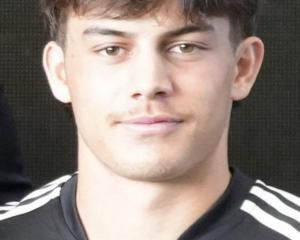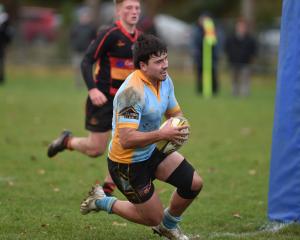
Basson and Chiliboy failed random doping tests for methylhexaneamine after the Springboks' victory over Ireland on November 6.
Six Nations Rugby, which administers the autumn internationals, received details of the failed tests late on Thursday but both players took part in the 29-25 win over Wales on Saturday because a review board was still deciding whether they had a case to answer, a person familiar with the situation told The Associated Press. He spoke on condition of anonymity because the disciplinary process is under way.
Basson and Ralepelle, who were told of their positive tests late on Sunday, can still have their "B'' sample tested.
The Springboks said Basson and Chiliboy have been taking medication for flu symptoms for a long time without any problems.
Methylhexaneamine appears in some nutritional supplements and cooking oils, and South Africa coach Peter de Villiers fears the team's energy drinks could contain the banned substance.
"We are busy sending stuff for testing," De Villiers told South African broadcaster Supersport. "Obviously we have to look at what might have caused this and we don't want to put the players at risk. If there is something that we are taking as a squad that might have caused this, then we must find that out now.
"When I informed the two players that they had been tested positive they were both extremely shocked and disappointed. The rest of the team were also gutted when they heard."
Doping officials target an average of one in every two matches during the autumn internationals, testing two players from each team.
"The substance could come from many different sources, like the caffeine substances," Springboks doctor Craig Roberts told Supersport. "What we are doing now is going through the process of looking at all the possibilities and exhausting them one by one. Obviously we need to get to the bottom of this as quickly as possible."
The 23-year-old Basson was selected for his second Springboks tour after scoring a record 21 tries in this year's Currie Cup playing for Griquas. The winger was due to return home anyway after injuring his ankle in his fourth test appearance on Saturday.
Ralepelle, a hooker who has won 18 caps, came on as a substitute against Wales. He was also the first black player to captain the Springboks when he led them against a World XV in 2006.
Beginning next year, the World Anti-Doping Agency will loosen the classification of methylhexaneamine to the "specified stimulant" list, which covers drugs that are more susceptible to inadvertent use and can carry reduced penalties.
Sanctions for use of the drug can be reduced if athletes can prove they did not intend to enhance performance. Penalties can range from a warning to a two-year ban.
The Australian Sports Anti-Doping Authority said last month that nine unidentified Australian athletes have tested positive for methylhexaneamine.
At the Commonwealth Games in New Delhi last month, two Nigerian runners - Osayomi Oludamola and Samuel Okon - also tested positive for the stimulant.












